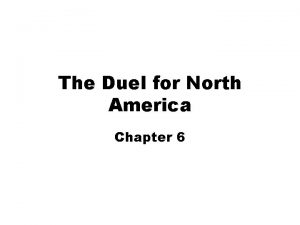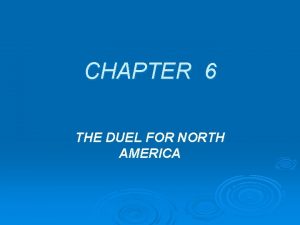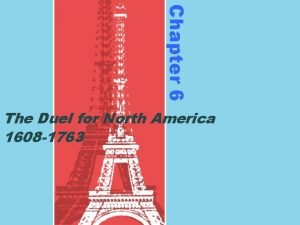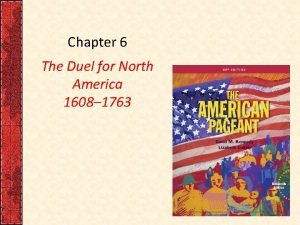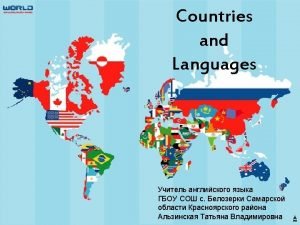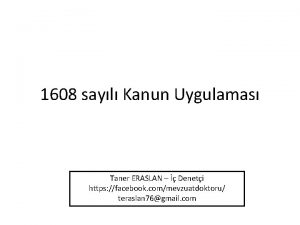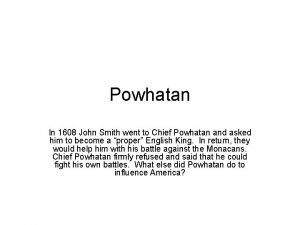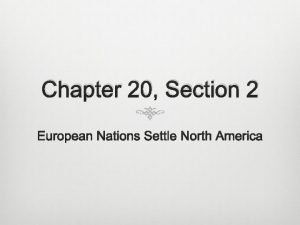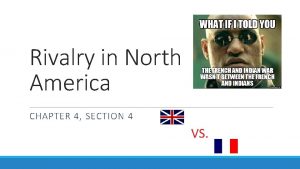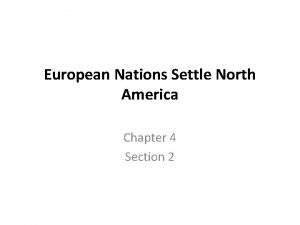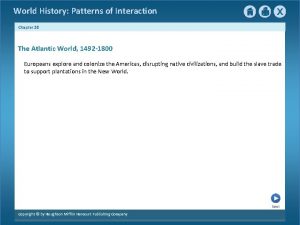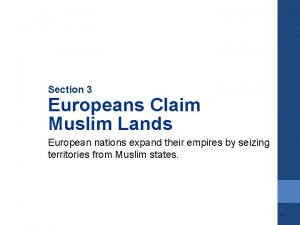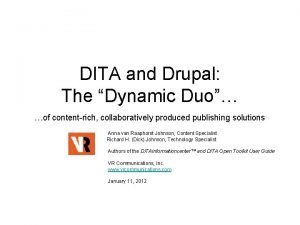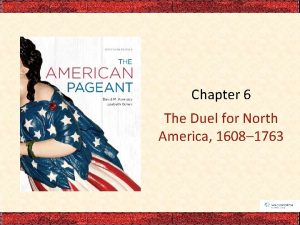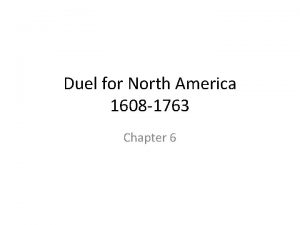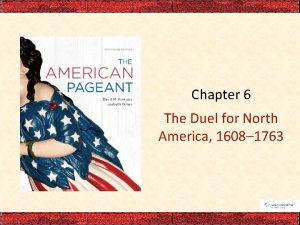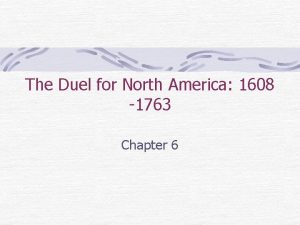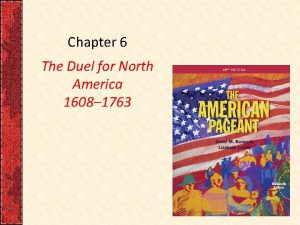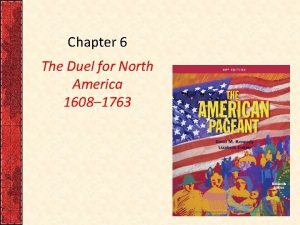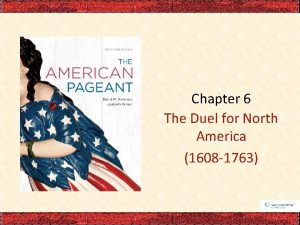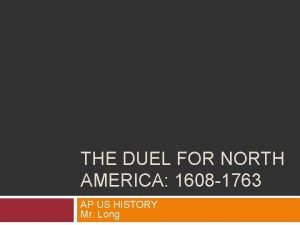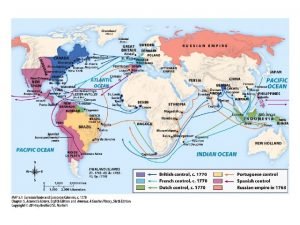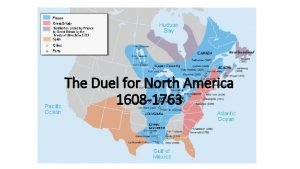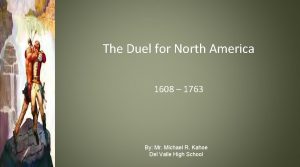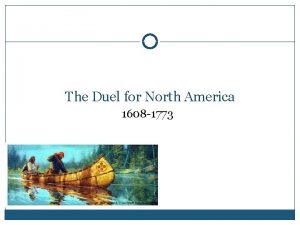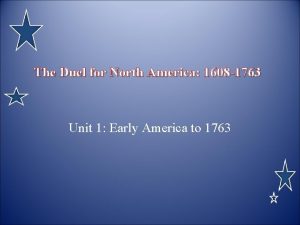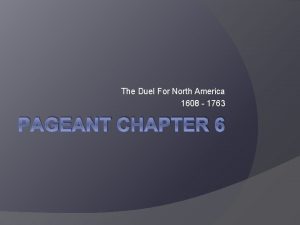Chapter 6 The Duel for North America 1608

















- Slides: 17

Chapter 6 The Duel for North America 1608 -1763

France in New World • Problems in France= started colonization later (Huguenots) • Samuel de Champlain and Quebec – Allied with Hurons (enemies of Iroquois) • New France= royal colony • Slow growing


New France • Focus on beaver trapping • Recruit Indians into trade • Alcohol, disease and weakened religion • Expanded north, west and south • Empire makers: Antoine Cadillac and Robert La Salle


George Washington • Ohio Valley= desired by French and British • Virginian claim vs. French fort system (Duquesne) • George Washington 1754 Fort Necessity • Deportation of Acadians in Nova Scotia (coming war)

Colonial Disunity • Albany Congress 1754 • Maintain Iroquois alliance • Ben Franklin= colonial home rule

Famous Cartoon by Benjamin Franklin. Delaware and Georgia were omitted.

General Braddock • General Braddock (Great Britain) tried to capture Fort Duquesne 1755 • Used to European warfare, not guerilla • Braddock killed, Indians extend warpath

William Pitt • William Pitt took over war effort (Great Commoner) – Focus on Quebec/Montreal – Quebec captured 1759, Montreal 1760 – Spain got Mississippi and Louisiana – GB got Florida – Treaty of Paris – GB= dominant world power

View of the Taking of Québec, 1759 On the night of September 13, British forces scaled the rocky cliffs of Québec and defeated the French army defending the city. The following year, Montréal, France’s last bastion in North America, surrendered. Fighting continued in the Caribbean, Europe, and the Philippines for two more years, until the Treaty of Paris was signed in 1763, eliminating France as a colonial power in North America.


Results of French & Indian War • Victory= military confidence, experience and officers • Arrogant British professionals vs. colonial amateurs • American shippers traded with enemy • Inroads made to fix colonial disunity

American Destiny • Removal of French= sense of independence, new Indian policies • Pontiac’s Rebellion 1763 • Westward expansion and permanent troops • Proclamation of 1763

North America Before 1754

North America After 1763 (after French losses)

British Colonies at End of the Seven Years’ War, 1763 This map, showing the colonies thirteen years before the Declaration of Independence, helps to explain why the British would be unable to conquer their offspring. The colonists were spreading rapidly into the backcountry, where the powerful British navy could not flush them out. During the Revolutionary War, the British at one time or another captured the leading colonial cities—Boston, New York, Philadelphia, and Charleston—but the more remote interior remained a sanctuary for rebels.
 Chapter 6 the duel for north america
Chapter 6 the duel for north america Chapter 6 the duel for north america
Chapter 6 the duel for north america Chapter 6 the duel for north america
Chapter 6 the duel for north america Chapter 6 the duel for north america
Chapter 6 the duel for north america Chapter 6 the duel for north america
Chapter 6 the duel for north america Your name
Your name +1608
+1608 Teleskobun optik parçalarını bulunduran yapıdır
Teleskobun optik parçalarını bulunduran yapıdır John smith 1608
John smith 1608 European nations settle north america
European nations settle north america Lesson 4 rivalry in north america
Lesson 4 rivalry in north america European nations settle north america
European nations settle north america Chapter 7 natural environments of north america
Chapter 7 natural environments of north america Chapter 20 section 3 world history
Chapter 20 section 3 world history Europeans claim muslim lands
Europeans claim muslim lands European nations settle north america
European nations settle north america Drupal
Drupal Nelly boustead
Nelly boustead
